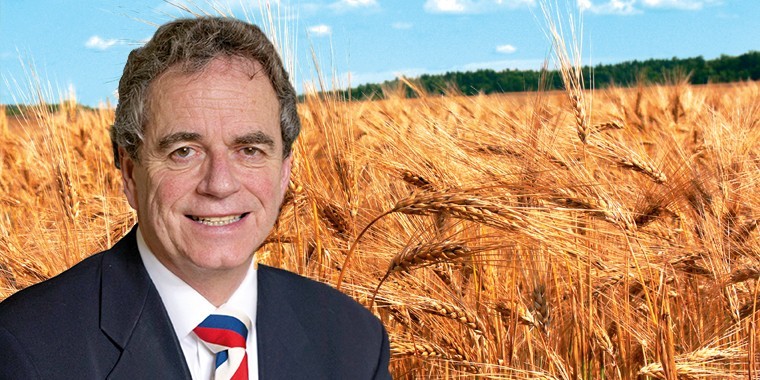As I write this in early June, the Northern Hemisphere harvest is about to begin, with winter barley being combined on the Atlantic coast of France and Spain. By the time you read this, we will know if Spain was being too optimistic in predicting a record barley crop of 11.5/12 million tonnes, four million tonnes up on last year.
We finally had some rain in most parts of the UK during the first week of June, which has now improved crops on the chalk lands. The following week of low temperature and cloud cover was almost perfect for spring malting barley. On other soils it has stabilised or even saved some crops.
If you can ignore the ‘balancing effect’ of the worldwide cut in demand caused by the pandemic versus record global stocks of maize and wheat, then weather becomes the main game from now on. I think the only area which could yet prove to be a game changer is southern Russia and eastern Ukraine. They are still short of rain, with high temperatures forecast for the rest of June; the recently planted Russian spring wheat crop, which is much increased on last year, is likely to suffer.
Again, when you read this, the UK Government should have clarified its position on the 31 December Brexit deadline. Unless the most important parts of the deal are agreed by 30 June, it’s difficult to see how it could be implemented in time for an orderly exit by the end of the year. So for the third year running we face exiting the EU without a trade agreement and would then be subject to the penal World Trade Organisation default tariffs on any grain exports to the EU.
Getting its defence in first, the UK has announced that if there is no deal, from 1 January we will impose a £79 per tonne import levy upon common wheat (mostly milling or soft wheat), which we currently import from Germany, Denmark and France.
You can view this in two ways; as the UK will be in deficit on new crop wheat, needing to carry over and import up to 4.5 million tonnes, it may be that in the new year this tax will provide a nice high ceiling price for UK milling if we have no formal deal with the EU. On the other hand, it may drive the domestic milling wheat consumers to pile in and import a lot more than usual from harvest to December to avoid the import levy.
Of course, we have seen this before, where importers overdo it, resulting in less UK wheat being used pre-Christmas, with domestic wheat being shunted into the new year, usually with a drop in value. So we could import our entire deficit by the end of December.
As I said last month, the new crop wheat prices are still around their peak, with milling premiums that could take the values up to £190 on the farm, so it’s hard to turn that down. The crop is not made yet, but when it is, the lack of demand because of the pandemic will still be with us, as will the uncertainty about Brexit. Like last year I expect it will go to the wire.
That makes no difference to wheat, as we won’t be exporting any, but it could still create a big problem for barley exports. Whatever the size of the UK barley crop, we will have too much to be absorbed into the domestic market between harvest and December. We rely a lot on the coaster trade for feed barley into Europe and malting barley depends entirely on that trade, as unlike feed barley, we don’t sell malting barley to third countries outside the EU.
Even with a smaller UK barley crop last year, we found that all the pre-Christmas export malting homes were filled up early. When it came to execution of shipments, the ports in the south were chock-a-block, with berthing space being difficult to find. If we are to exit on 31 December with no deal, the same will happen again. If your barley needs moving pre-Christmas, it needs selling and programming in now for export.
The pandemic seems to have highlighted weakness in the EU. The Schengen Agreementwas forgotten as EU countries rushed to close their borders to keep out member states perceived to have a larger virus problem. Around the world, nationalism and sovereignty have taken priority.
Suddenly some of the elongated global supply chains don’t seem so attractive. I’m not surprised the Government is having second thoughts about integrating China into our new 5G communication system. I understand some of their medical protection equipment failed to meet our standards. I hope that our government is now more aware of the need for the UK to produce more of its own food and import less ‘lower grade’ food products. Globalisation is taking a hit, and so too is liberalism. Recent events show that the government was right to enforce a lockdown because some of our population are either too stupid or selfish to realise the harm they are doing to themselves and others, by flouting the law.




